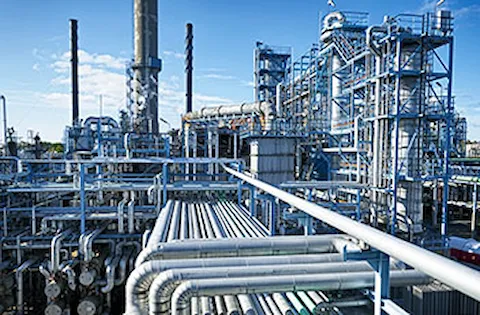Risk Based Inspection Planning & Management
Are you addressing the right risk?
Risk Based Inspection Planning & Management
Pipe systems, tanks, pressure vessels and associated equipment are exposed to degradation such as corrosion, fatigue and mechanical damage which lead to corresponding threats of fire, explosions and shut-downs. These threats need to be managed in a systematic approach to safeguard life, environment and property. To do so, the associated risks need to be identified and managed in a recognized and trustworthy manner.
Traditional inspection methodologies can work on a fixed period basis whereas in the context of Risk Based Inspection, risk is considered as the product of the consequence and the probability of a failure event. This ensures that the objects with high risk are prioritized and items with insignificant risk can be given less attention. Successful implementation of Risk Based Inspection by DNV’s customers has been shown to both reduce maintenance costs and improve process availability.
How can we help?
There is a structured way to manage the associated economic, safety and environmental risks in a systematic, documented and recognized approach. DNV has developed and offers a full range of Risk Based Inspection (RBI) Planning and Management services for piping, tanks and pressure vessels.
The objective of the RBI Planning and Management activities is to ensure safe and cost-optimized integrity management of containment systems on the plant, and thus, maximize the availability and production regularity while at same time ensure the safety for personnel.
The inspection management system also ensures an efficient experience transfer between different disciplines and locations and is a tool for continuous improvement.
The methodology is in accordance with recognized standards such as API 580, DNV RP G101 and the upcoming prEN 16991 Risk Based Inspection Framework.
Our services
DNV offers services tailored to our customer’s organization, assets and needs. This can be categorized as the following:
- Training and experience exchange within Risk Based Inspection.
- Facilitation of RBI processes including GAP assessments and later potential technical audits of performance.
- Technical advisory within RBI, including performing the analysis and implementing the results.
- Risk Based Inspection management of the asset including day to day management of inspection, testing and monitoring activities.

